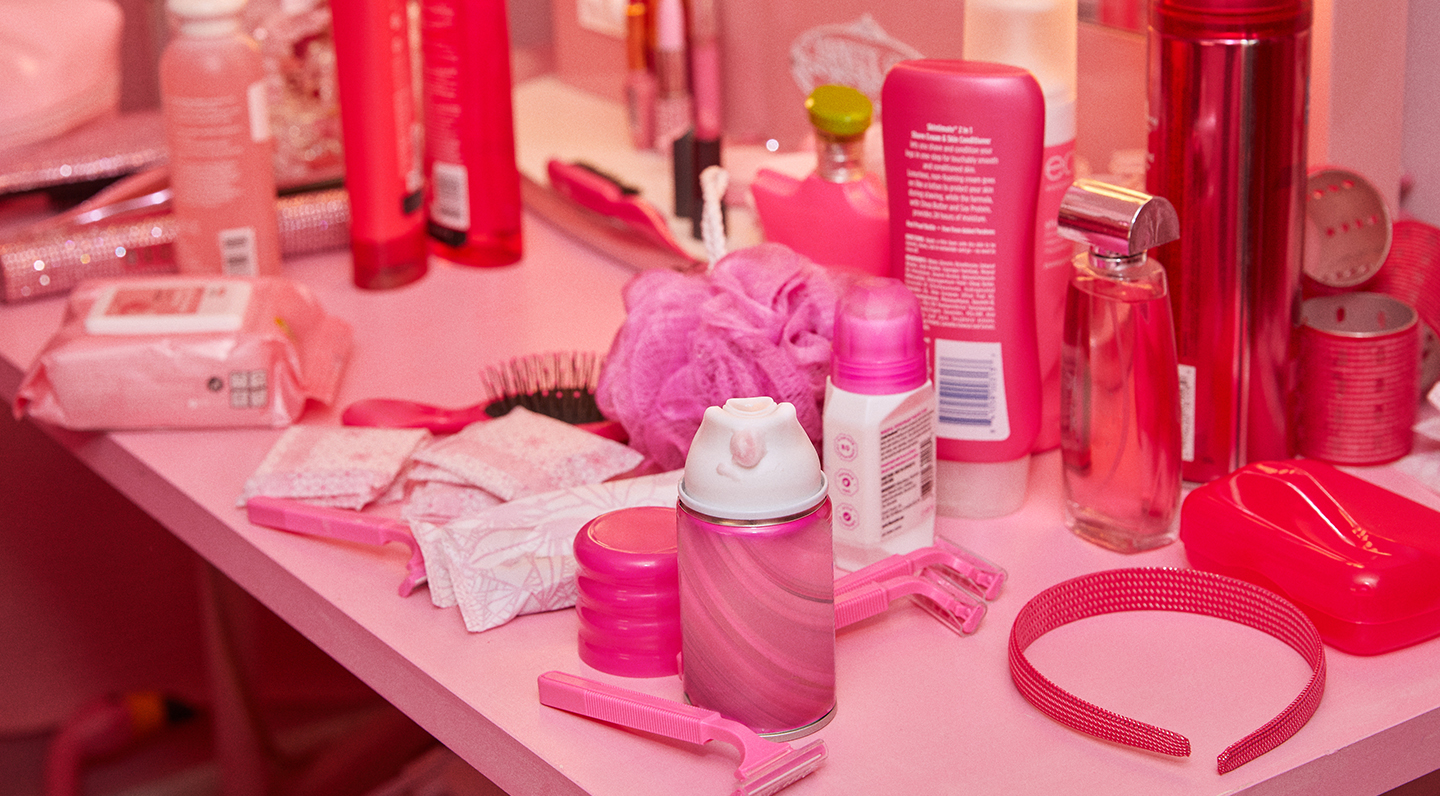What Is The Pink Tax And How Much Is It Costing You?
Bekka Wiedenmeyer
Almond milk. Laundry detergent. Razors. Toilet paper. Tampons.
Looks like your average shopping list, but two of these are not like the others. Can you guess which?
If you guessed razors and tampons for any particular reason, you are correct. But why do these two items stand out in an otherwise regular line-up of necessary household items? It has to do with the way they are taxed, and if you are a person who identifies as female in America, you have most likely been subject to the “Pink Tax” in more ways than one, whether knowingly or otherwise.
“Pink Tax” is a term loosely applied to the extra amount women pay for certain essential products and services.
Obvious offenders are things like pads, tampons, and razors. But it doesn’t just end there. Products like shampoo, deodorant, shaving cream, and clothing will also hit your wallet harder than say, the average male’s, along with services like dry cleaning and vehicle maintenance. Many women end up paying more for health insurance, as well, even though we statistically tend to live longer lives than men.
Studies found that the pink tax overall costs a woman on average an extra $1,351 a year.

The issue is that we can’t live without these products and services. While they are not considered “FSA eligible” like many medical and health-related products, many women would argue they are necessary for quality of life. Having to pay extra to get items like pads and tampons makes this a gender disparity issue.
Recently, many companies have been stepping up to the plate to fight gender inequality issues when it comes to essential products and services.
Boxed, a company taking a stand against the pink tax is offering many of its products and services for the same price, regardless of whether the target audience is male or female. Boxed was the first U.S. retailer to take a stand on gender pricing inequality, according to Nitasha Mehta, director of vendor marketing at Boxed in 2019.
Major hair removal salon chain European Wax Center began leading the effort to “Ax the Pink Tax” in April 2018 by raising awareness and education on the issue and has partnered with companies like Refinery29 and Cosmopolitan to continue bringing awareness to the problem through digital and social media content. EWC has also provided discounts on products to try and alleviate the financial burden of the pink tax, along with donating to female-focused charities which help empower women throughout their education and careers.
As of March 2018, 16 states have introduced removing the pink tax from menstrual products into legislation, and as of November 2018, 10 of those states have already passed legislation. It doesn’t solve the whole issue, but it’s a start.
So what can you do to help create change? Support companies and brands that offer comparable prices and services.
Talk about it. Be aware. Be a part of the movement. Embrace the pink, but reject the tax.
Bekka Wiedenmeyer is a freelance journalist with a bachelor’s degree in journalism. Based in New York City, she is excited to share her passion for health and lifestyle with readers through MAED as she works toward her ultimate goal of discovering NYC’s most perfect latte.





